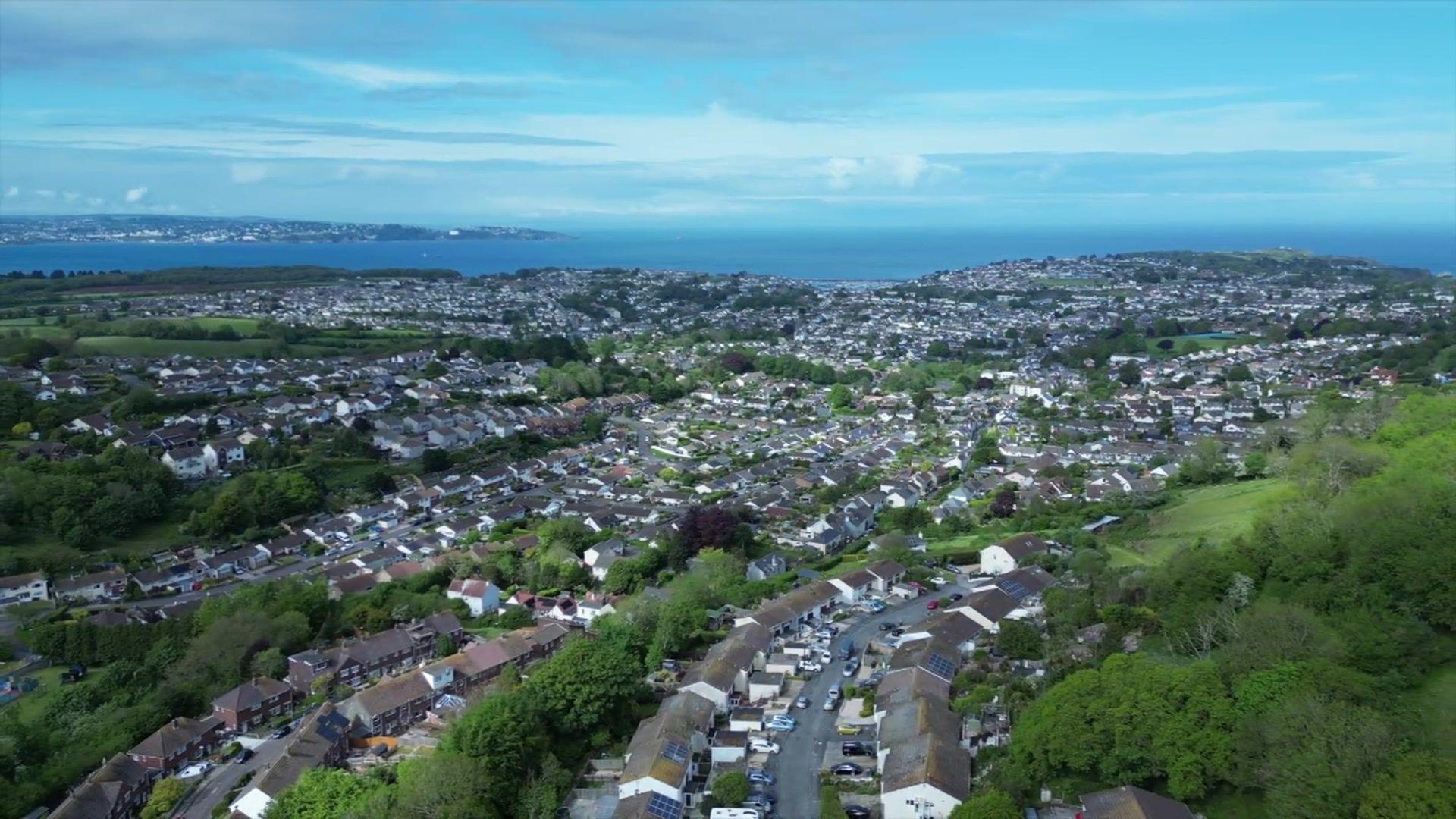Water parasite outbreak to last 'at least' a week
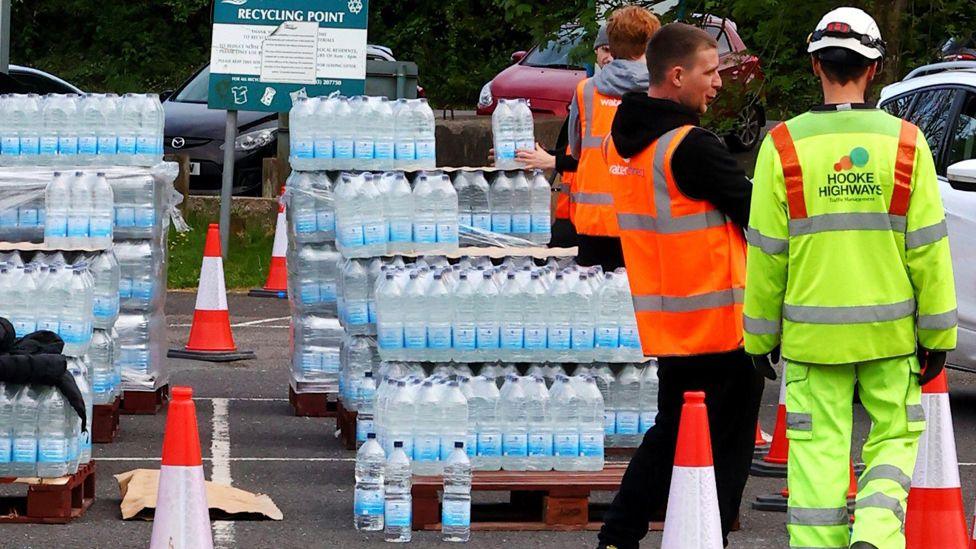
Residents have been supplied with bottled water by South West Water
- Published
An outbreak of a diarrhoea-type illness is expected to last for "at least" a week in south Devon, with people told to boil their tap water until further notice.
Public Health said 22 cases of cryptosporidiosis had been confirmed in Brixham and up to 100 people had reported symptoms to their GP in the last week.
A Brixham primary school has closed as it said running a school without drinking water was "not possible".
Parent Nicky Langdon-Ward branded the situation as "unacceptable" and said South West Water (SWW) took "far too long" to act.
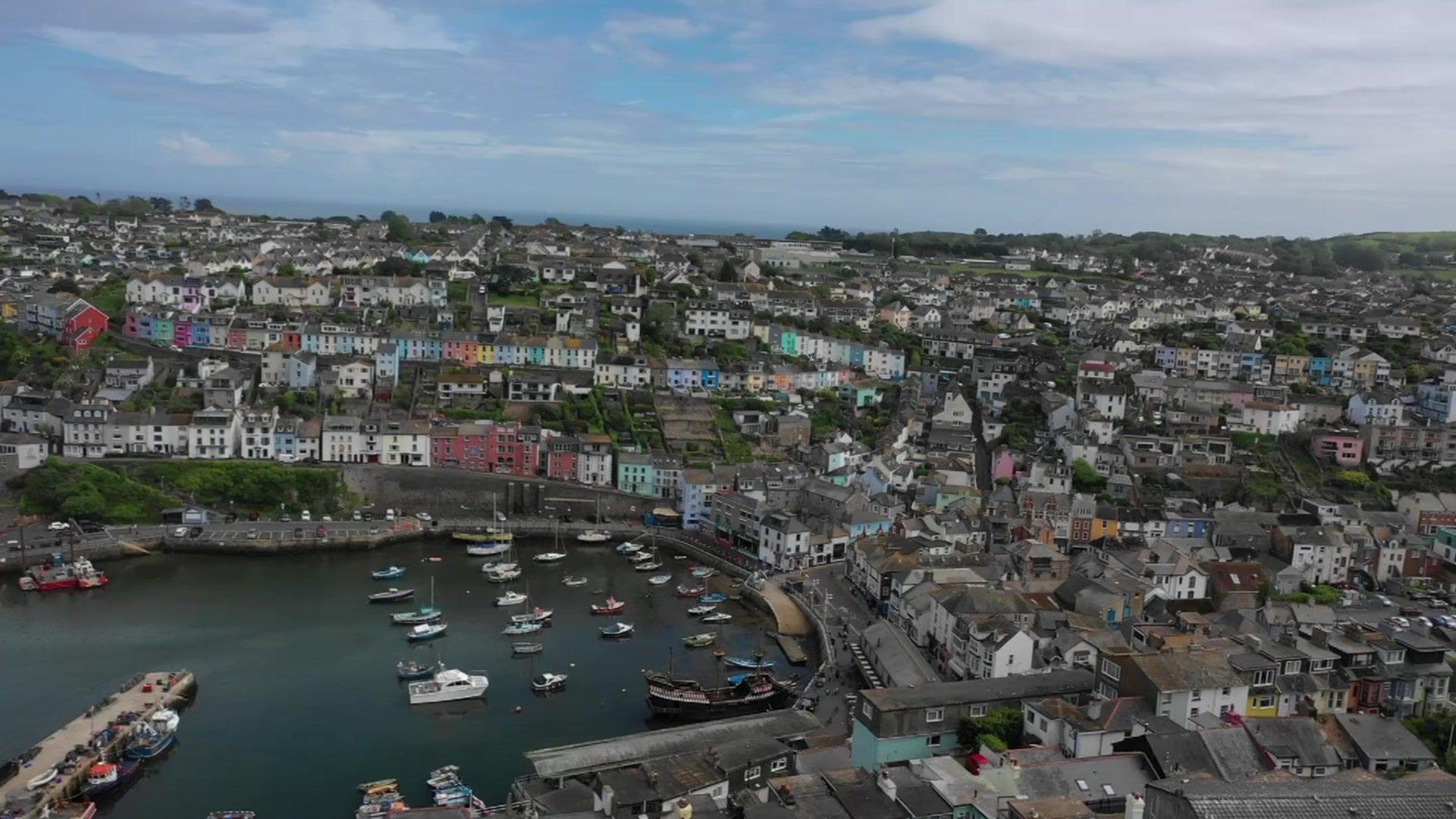
A total of 22 cryptosporidiosis cases are confirmed with reports of up to 100 people having symptoms in Brixham
Infections from the parasite cryptosporidium can be caused by drinking contaminated water or swallowing it in swimming pools or streams.
SWW said the Hillhead reservoir and the wider Alston area were being investigated as a potential cause for the outbreak - an area which about 40,000 residents get their water supply from.
In a statement to parents, Eden Park Primary & Nursery School said it "has not received any bottled water or assurances of when water will be delivered".
It said: "As you will understand, running a school without drinking water is not possible.
"We remain hopeful about opening again on Friday pending deliveries and the situation."
'Added stress'
James Simpson, head teacher at Churston Ferrers Grammar School, said water fountains had been turned off in the school to stop infections from spreading.
"We’re asking and encouraging families to send all students to school with enough safe drinking water to get through the school day," he said.
“We’ve been supplied with some bottled water by South West Water, but ultimately we don’t have enough."
Mr Simpson said it was "a really inconvenient time" during school exams but that mitigations had been put in place to prevent a full school closure.
"Undoubtedly that’s added to the stress and the worry that a number of students feel at examination time," he said.
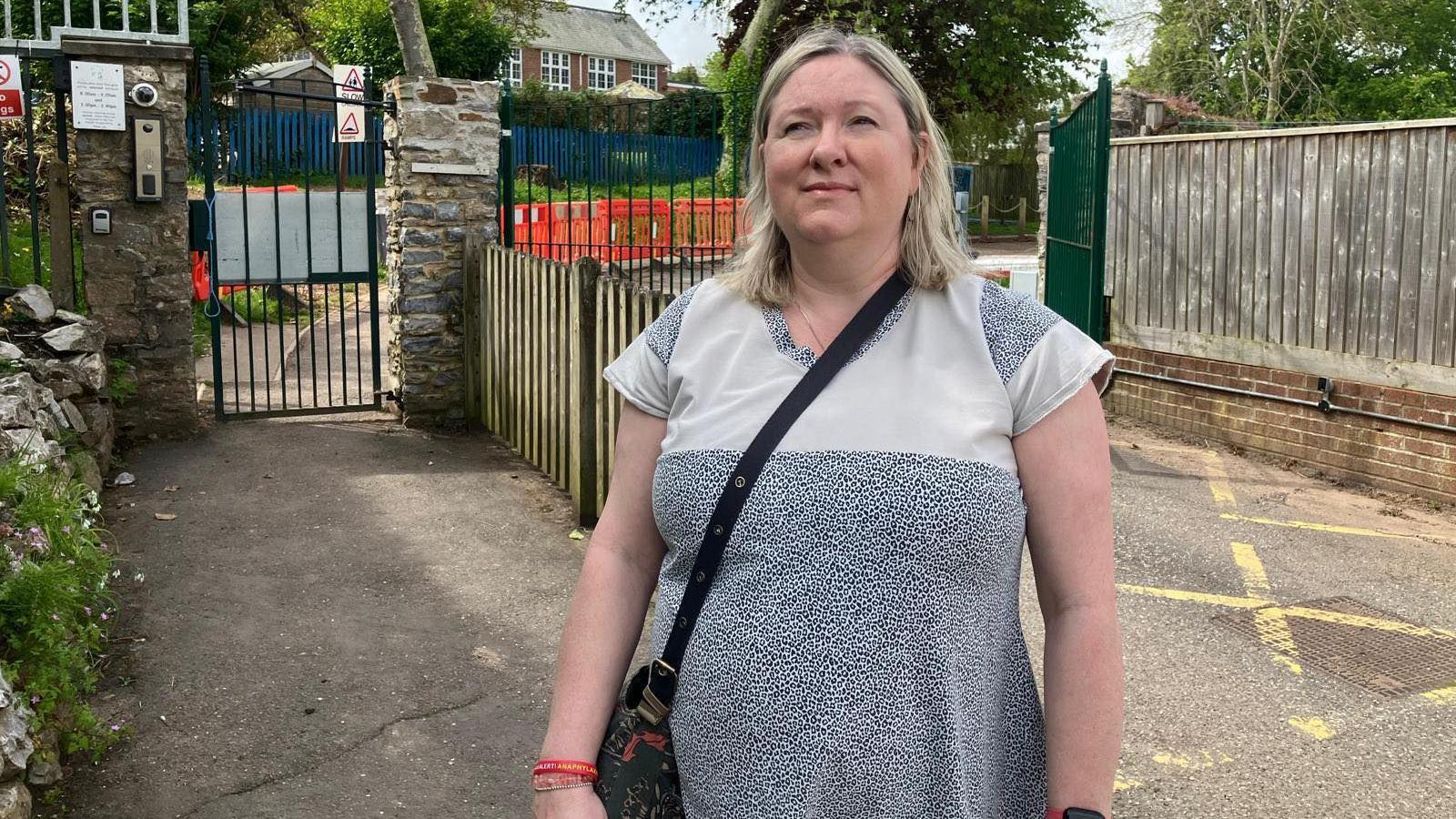
Nicky Langdon-Ward said she and her family have had "severe" stomach cramps for a fortnight
Ms Langdon-Ward said: "It's not really an acceptable situation for South West Water to leave the school in."
She said her and her family had suffered from "severe" stomach cramps for two weeks which had resulted in her taking time off work.
The parent said: "It has taken far too long to investigate considering the number of cases in Brixham."
Prof Paul Hunter, a specialist in microbiology and infectious disease at the University of East Anglia, said cases would continue to climb even after the source was found.
He said: "It's difficult to know how big these outbreaks turn out to be and it depends on whether the contamination event is a very short lived thing.
"The difficulty here is that cryptosporidium can take up to about 10 days before you become ill, so even if they stop the infection today we'd still see new cases occurring for at least another week to 10 days."
Compensation increase
Laura Flowerdew, SWW's chief customer officer, said earlier tests showed there was "no indication" of cryptosporidium in the water when it left the treatment works.
She said "extended and enhanced" sampling on Tuesday confirmed there was concern with the water supply.
"Following that we've immediately raised a boil notice for customers in the affected areas which are Hillhead and Alston areas," she said.
The water company initially told affected customers they would receive £15 in compensation.
The payment, which will be made automatically, has since been increased by £100, to £115, SWW confirmed.
Ms Flowerdew apologised for the disruption to the water supply.
“Protecting the health of our customers and providing them with a clean fresh drinking water supply is our number one priority," she said.
"We will continue to work around the clock to make sure that happens as soon as possible.”
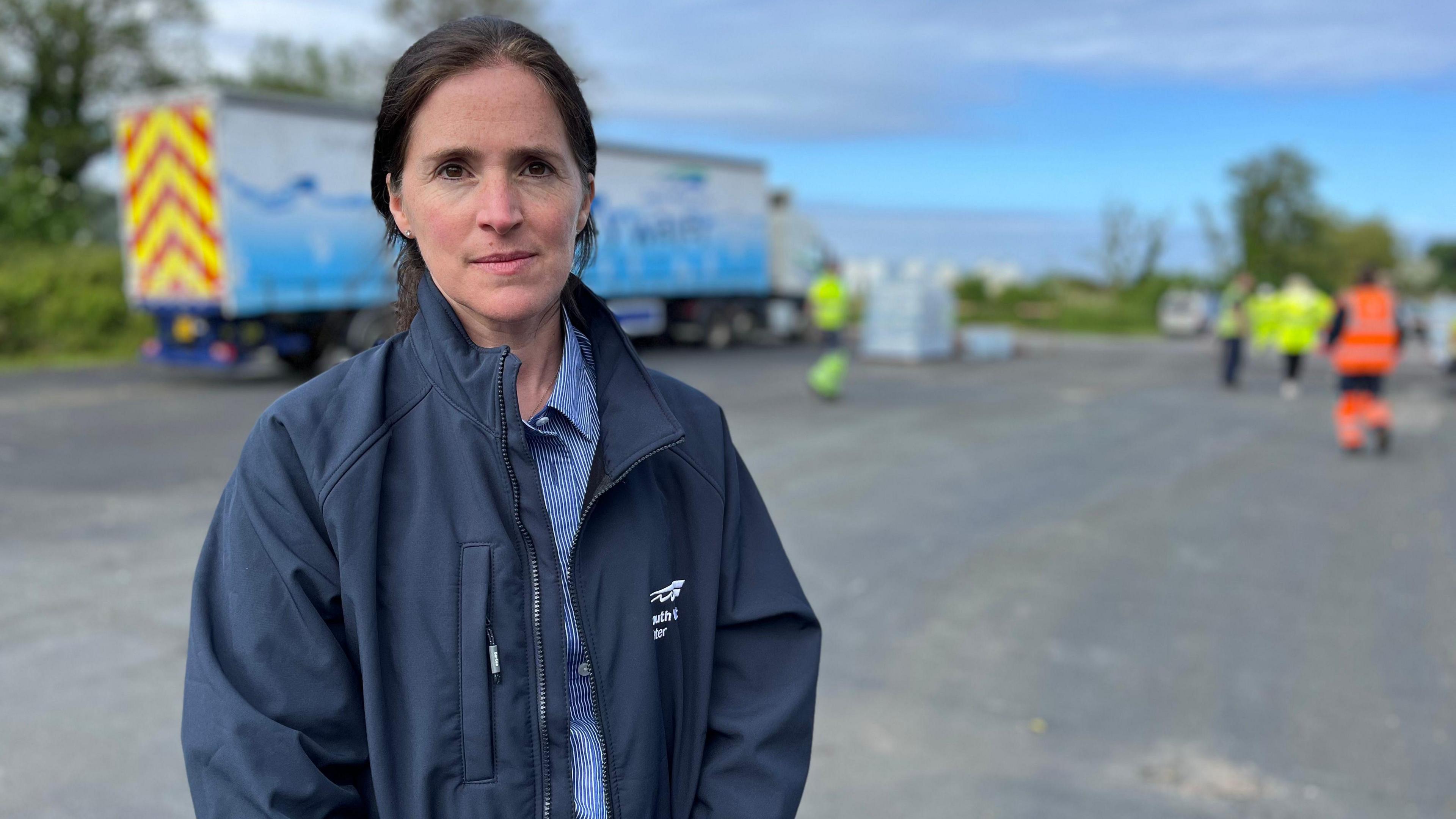
Laura Flowerdew said a boil notice was immediately raised
SWW is continuing to advise people to boil their tap water and has set up water stations for residents to collect free bottled water.
A water collection point at Broadsands Car Park is open from 06:00 until 21:00 BST.
Following concerns from residents, the water firm on Thursday morning opened another collection point at Freshwater Quarry, external car park in Brixham.
It said bottled water was being delivered to vulnerable residents.
Prof Hunter said SWW needed to "find out what the source is [and] try and either bypass that or clean that and flush out the system".
"In the meantime people should boil their drinking water and that's not just water that you drink in a glass, that includes water used for brushing your teeth," he said.
The UK Health Security Agency said it was continuing to work with Torbay Council, SWW, NHS Devon and the Environment Agency to investigate the cause.
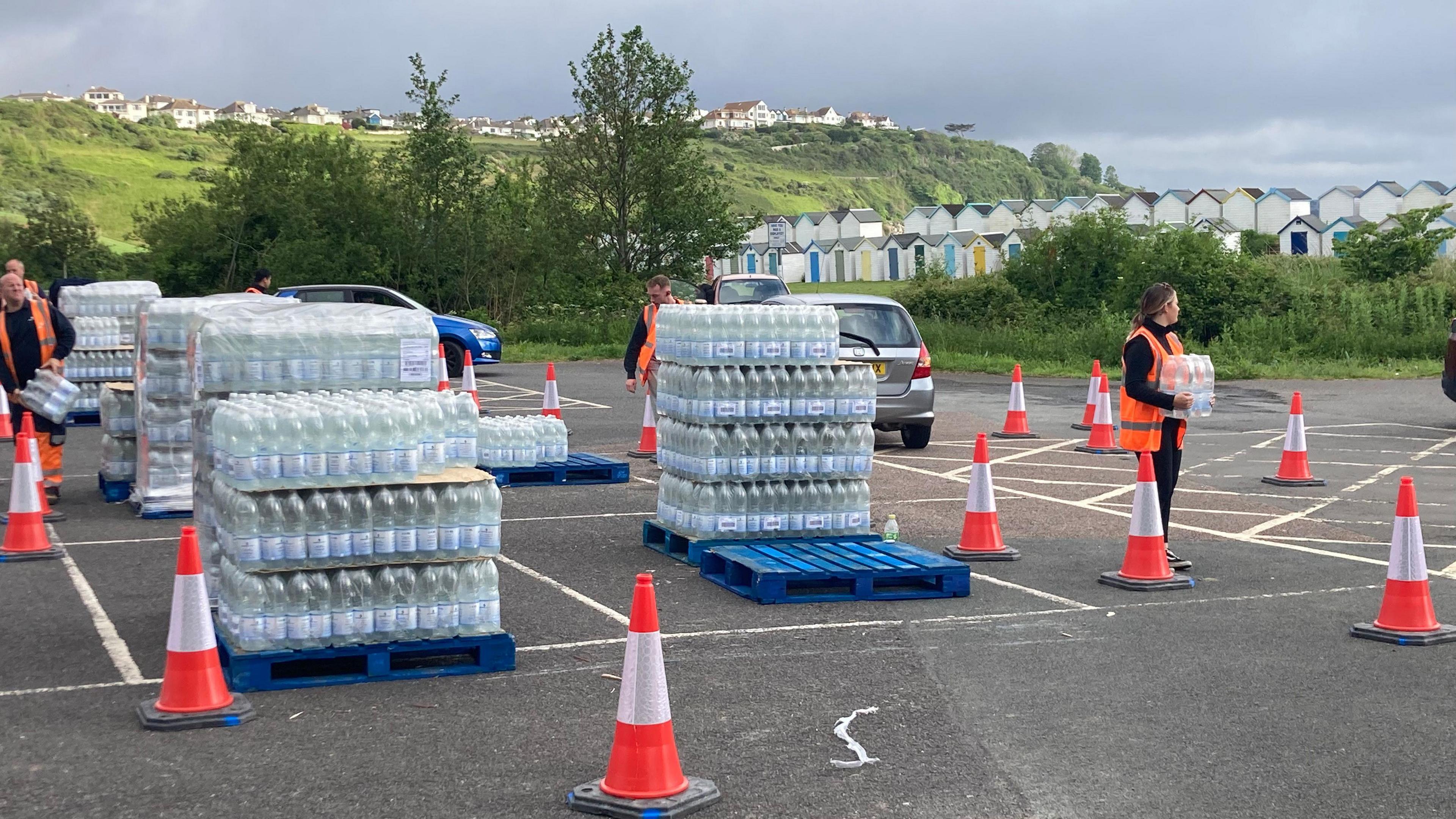
Concerns have been raised over the location of a bottled water station
Outbreaks of cryptosporidiosis, which cause prolonged diarrhoea, affect between 3,000-6,000 people a year in the UK, according to health officials.
There is no effective antibiotic for treating it but most people recover.
It is usually waterborne – and those infected either drink water contaminated by the cryptosporidium parasite or swallow dirty water in swimming pools or streams.
It can also be caught from contact with animal manure.
This is usually the most common way people become unwell, with a spike coming in spring when farms hold open days.
Most people recover, but some can become seriously ill such as very young children and those with particularly weak immune systems.
For many, the diarrhoea can last for two weeks or more.
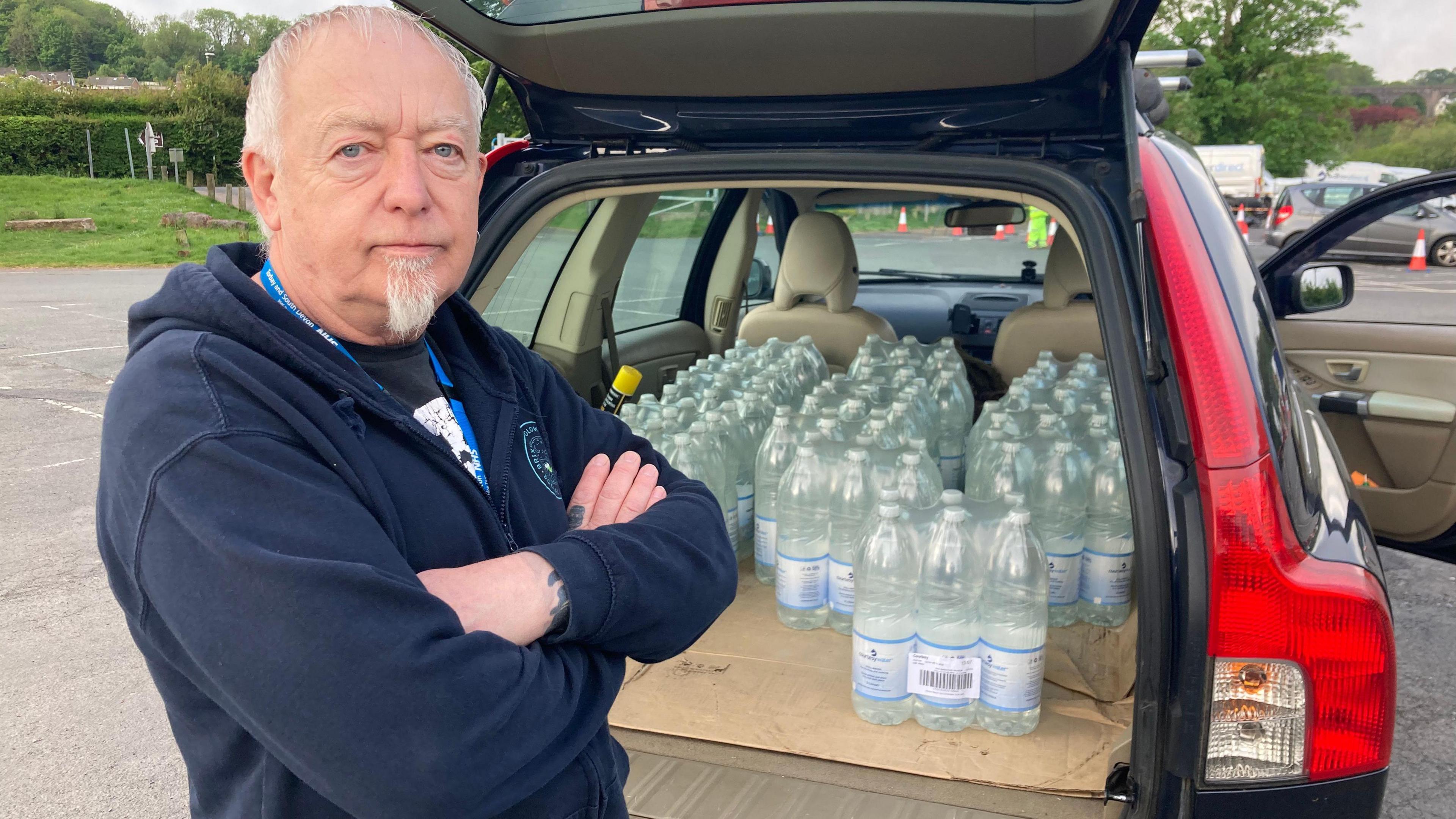
Guy Highfield said he was "disappointed" with the water company's response
Guy Highfield, a Brixham resident, said he was "very ill" last week and he was disappointed SWW had not set up more water stations.
He expressed concerns for elderly and vulnerable people who may be unable to collect bottled water.
Mr Highfield added he had picked up about 20 homes worth of bottled water to deliver to others.
"We're only here because we've seen it on social media," he said.
"Even the leaflet drop person last night didn't tell us we could come and collect it.
"Get a delivery drop out to some of the elderly and vulnerable people in those areas."
SWW said it was continuing to deliver bottled water to vulnerable residents every 24 hours.
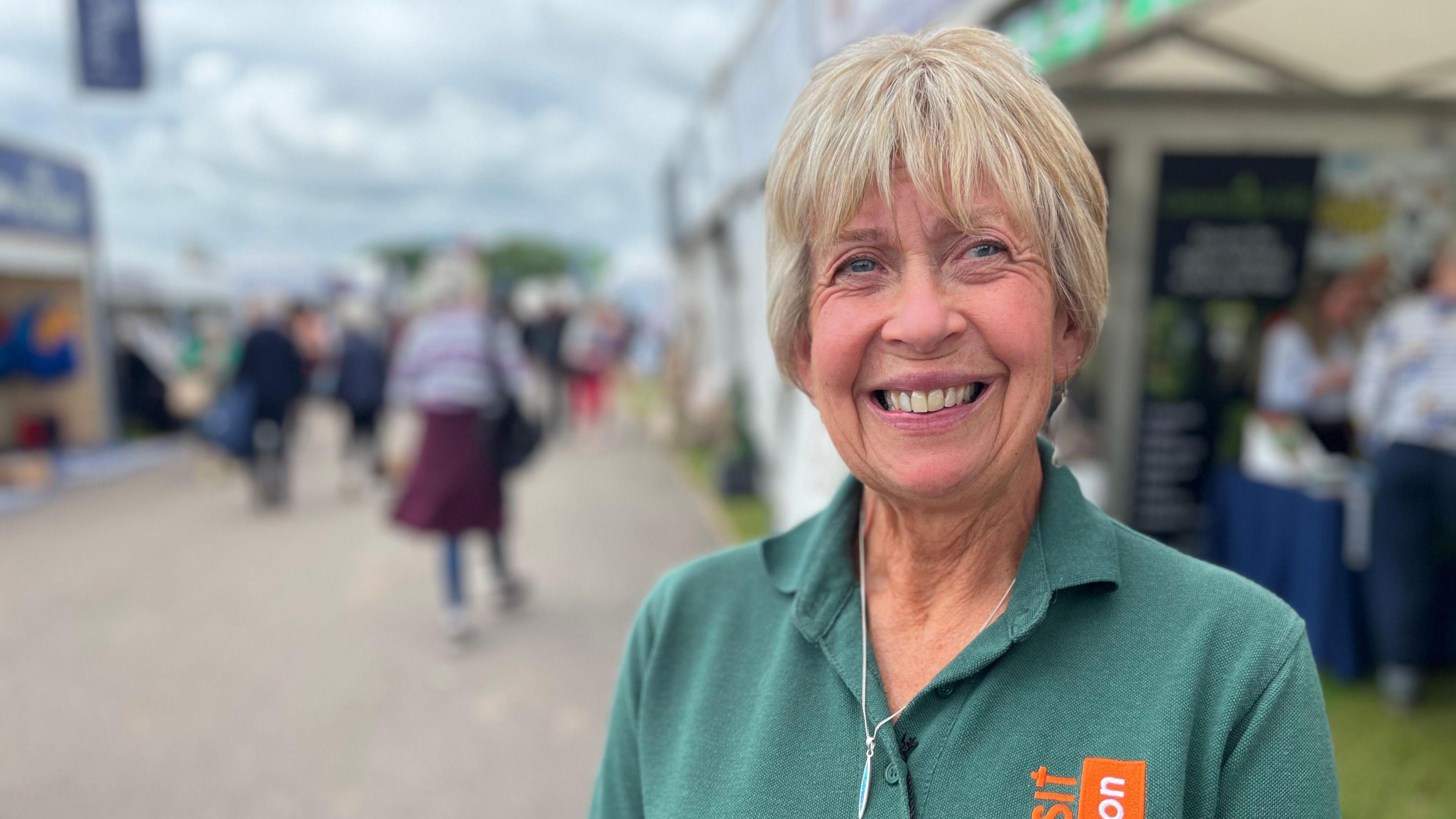
Sally Everton said she was concerned the situation was deterring tourists from booking holidays in the near future
Sally Everton, director of Visit Devon, said it "was a bit of a concern" for the future of tourism in the area.
"The national media coverage that we've had could have a knock on effect to our forward bookings but also it'll have a knock-on effect to our instantaneous bookings.
"People will probably look at Devon rather than just Brixham and Paignton and think, 'no we'll steer clear for the time being' and that is a major concern to me."
Jess Blake and her family visited Brixham for a short holiday last week.
She said since returning home to Portsmouth, she had suffered from severe diarrhoea, dizzy spells, flu like symptoms and bodily aches.
"I feel sorry for the businesses now because they're going to have lots of complaints and obviously it's not their fault.
"This is the worst kind of bug that I've had, it's awful."
Get in touch
Do you live in Devon and have seen the water become dirty in your area?
Follow BBC Devon on X (formerly Twitter), external, Facebook, external and Instagram, external. Send your story ideas to spotlight@bbc.co.uk, external.
Related topics
- Published17 May 2024
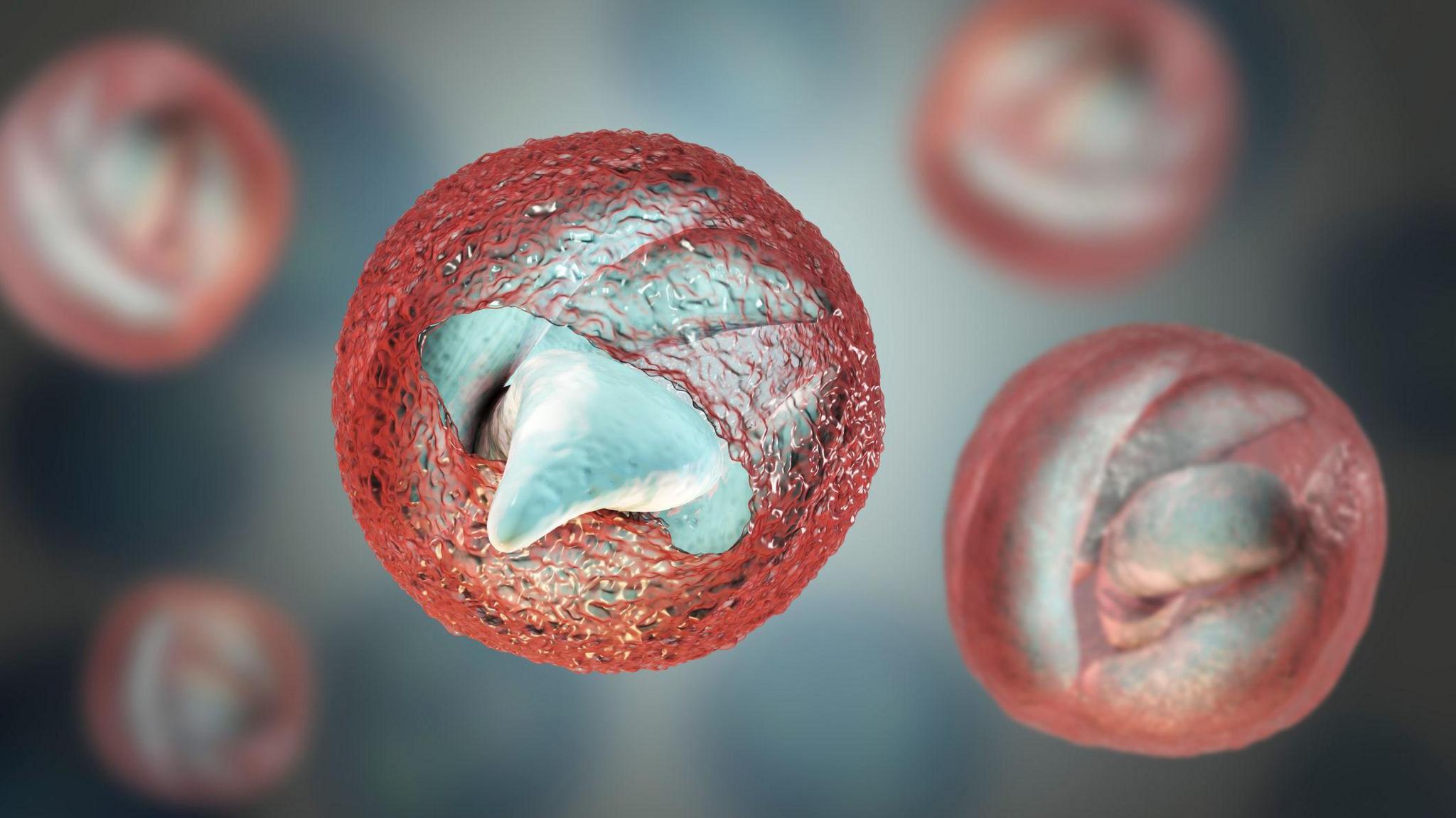
- Published15 May 2024
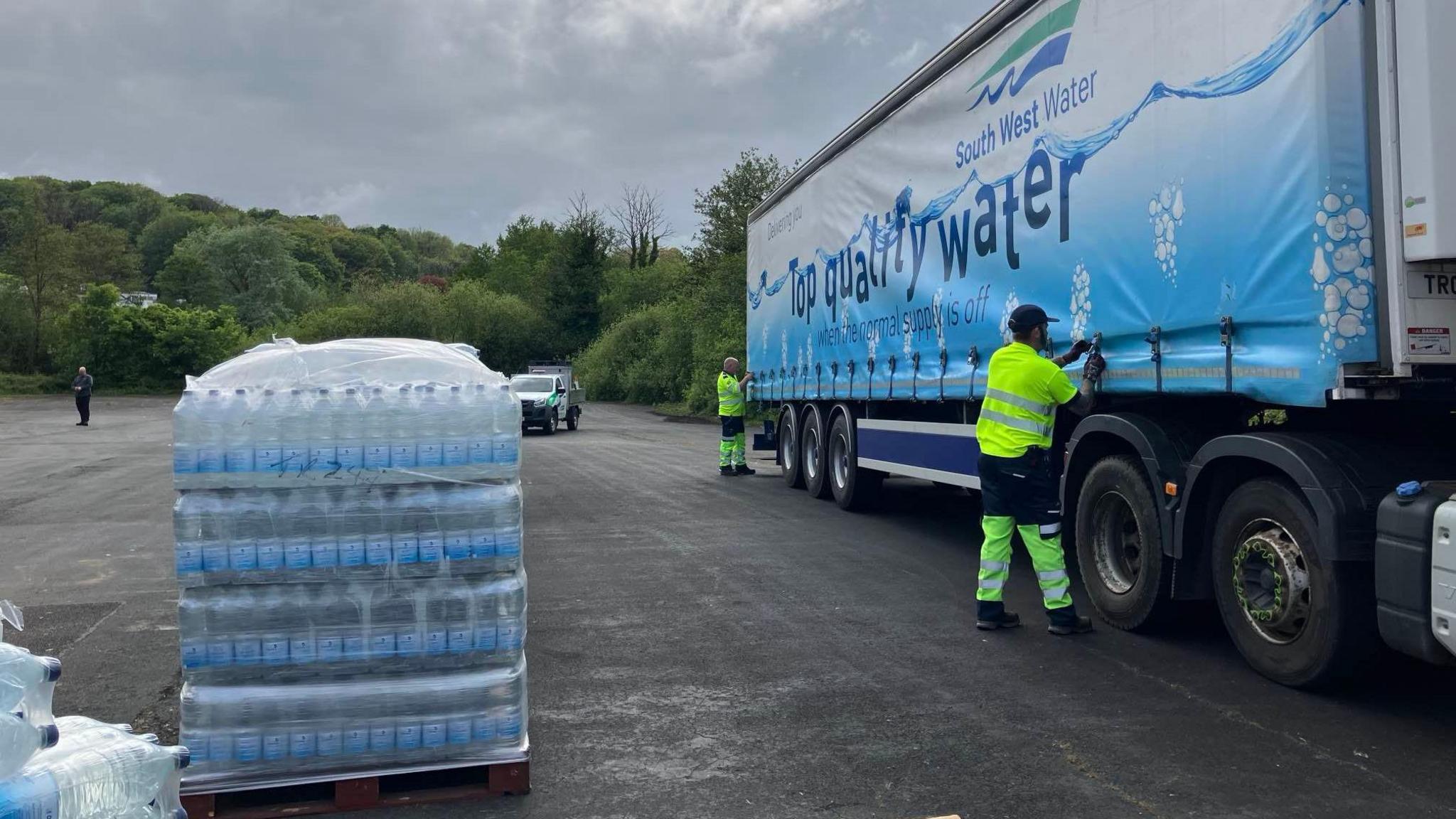
- Published14 May 2024
